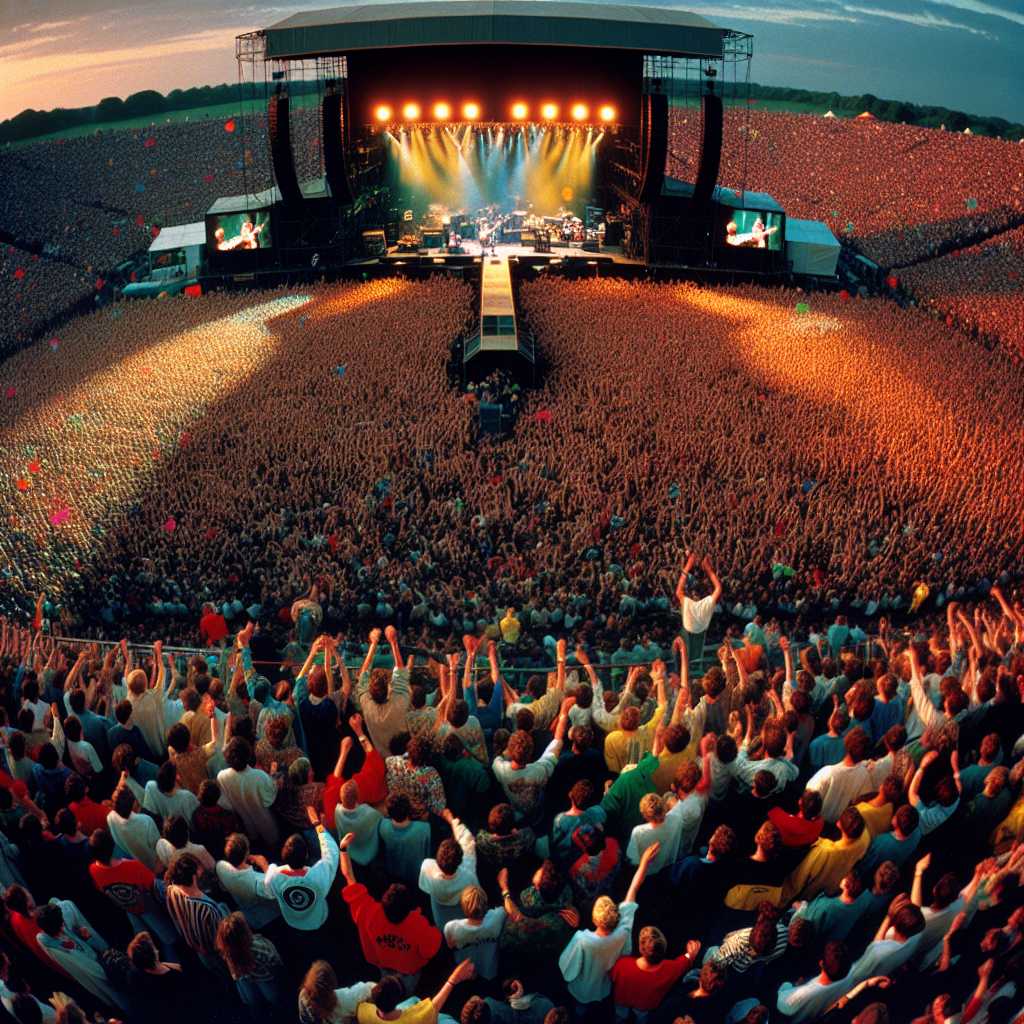The Rise and Influence of Oasis in the Music Industry
Oasis, one of the most prominent British bands that emerged in the 1990s, made a profound impact on the music scene with their distinctive blend of rock ‘n’ roll swagger and melodic hooks. Led by the Gallagher brothers, Liam and Noel, Oasis became synonymous with the Britpop movement, although their music transcended any single genre. Their influence was felt nationwide and internationally, breaking sales records and defining a generation of music enthusiasts.
Early Beginnings to Mainstream Success
The Formation of Oasis Initially known as The Rain, the band was formed in Manchester in 1991. After Noel Gallagher joined as the principal songwriter and lead guitarist, the group adopted the name Oasis. Their lineup solidified with Liam as the lead vocalist, Paul “Bonehead” Arthurs on guitar, Paul “Guigsy” McGuigan on bass guitar, and Tony McCarroll on drums. Breakthrough with ‘Definitely Maybe’ Oasis’s debut album, ‘Definitely Maybe’, rocketed them to fame in 1994. It became the fastest-selling debut album in the UK at the time. Packed with anthemic tracks like “Live Forever,” “Supersonic,” and “Slide Away,” this album projected a sound marked by infectious melodies and confident attitude. International Stardom with ‘(What’s the Story) Morning Glory?’ The follow-up album, ‘(What’s the Story) Morning Glory?’, released in 1995, propelled Oasis into international stardom. It featured hits like “Wonderwall,” “Don’t Look Back In Anger,” and “Champagne Supernova,” instantly becoming classics. This era signified the band’s peak commercial success, as millions worldwide tuned into their 1996 Knebworth concerts. Further Albums and Evolution
Breakthrough with ‘Definitely Maybe’ Oasis’s debut album, ‘Definitely Maybe’, rocketed them to fame in 1994. It became the fastest-selling debut album in the UK at the time. Packed with anthemic tracks like “Live Forever,” “Supersonic,” and “Slide Away,” this album projected a sound marked by infectious melodies and confident attitude. International Stardom with ‘(What’s the Story) Morning Glory?’ The follow-up album, ‘(What’s the Story) Morning Glory?’, released in 1995, propelled Oasis into international stardom. It featured hits like “Wonderwall,” “Don’t Look Back In Anger,” and “Champagne Supernova,” instantly becoming classics. This era signified the band’s peak commercial success, as millions worldwide tuned into their 1996 Knebworth concerts. Further Albums and Evolution
International Stardom with ‘(What’s the Story) Morning Glory?’ The follow-up album, ‘(What’s the Story) Morning Glory?’, released in 1995, propelled Oasis into international stardom. It featured hits like “Wonderwall,” “Don’t Look Back In Anger,” and “Champagne Supernova,” instantly becoming classics. This era signified the band’s peak commercial success, as millions worldwide tuned into their 1996 Knebworth concerts. Further Albums and Evolution
Further Albums and Evolution
Following their initial eruption onto the music scene, Oasis continued to release albums that faced varying levels of success. “Be Here Now” (1997) initially received mixed reviews due to its bombastic production but included favorites like “D’You Know What I Mean?” By releasing “Standing on the Shoulder of Giants” (2000) and subsequent works like “Heathen Chemistry” (2002), “Don’t Believe the Truth” (2005), and “Dig Out Your Soul” (2008), Oasis experimented with their style while dealing with lineup changes.
Tumultuous Relationships and Breakup
Throughout their journey, Oasis faced several internal conflicts, particularly between the Gallagher brothers, which frequently made headlines. The culmination came in August 2009 when a backstage fight led Noel to leave the band. Despite periodic rumors of a reunion stirred by fans’ hopeful anticipation, there has not been an official reconciliation of Oasis.
Legacy and Lasting Impact
The Continuing Influence Even years after their disbandment, Oasis’s music remains influential, inspiring new artists who incorporate elements of their sound into modern rock music. Their place is firmly sealed in both the British music narrative and global rock history. Revivalism and Covers Oasis songs are regularly covered by varied acts reflecting their universal appeal. The popularity of their songs on streaming platforms and continued high demand for remastered editions or box sets of their albums testify to a legacy that endures well into the digital age. Tributes and Documentaries
Revivalism and Covers Oasis songs are regularly covered by varied acts reflecting their universal appeal. The popularity of their songs on streaming platforms and continued high demand for remastered editions or box sets of their albums testify to a legacy that endures well into the digital age. Tributes and Documentaries
Tributes and Documentaries
Films such as “Supersonic” (2016) document Oasis’s heyday and tumultuous dynamics, serving both as tribute and revealing investigation into one of Britain’s most beloved rock entities.
British Cultural Phenomenon
As part of Britpop alongside bands such as Blur and Pulp, Oasis has left an indelible imprint on British culture. Their music not only defined an era but also gave rise to a particular brand of British pride during a musically rich period in history.
Erotic Competitiveness With Their Peers
Their competition with other Britpop bands, most notably Blur, characterized part of their storyline. Oasis’ drive to be at the top could often manifest itself through public spats and contests for chart supremacy that fueled media frenzies.
Expulsion As Trendsetters
Beyond music alone, they also influenced fashion trends that mirrored their distinctively casual yet all-embracing Mancunian attitudes—tracksuits, parkas—becoming symbols associated with ’90s music well beyond Manchester’s borders.
Notes
Image Description: A wide-angle shot from an aerial view showcasing a packed outdoor concert arena displaying ‘Oasis’ onstage during a live performance at Knebworth House in 1996. The crowd is dotted with colorful clothing, hands waving in the air, while the stage glows with ambient lighting casting dramatic shadows across various band members immersed in their performance.
